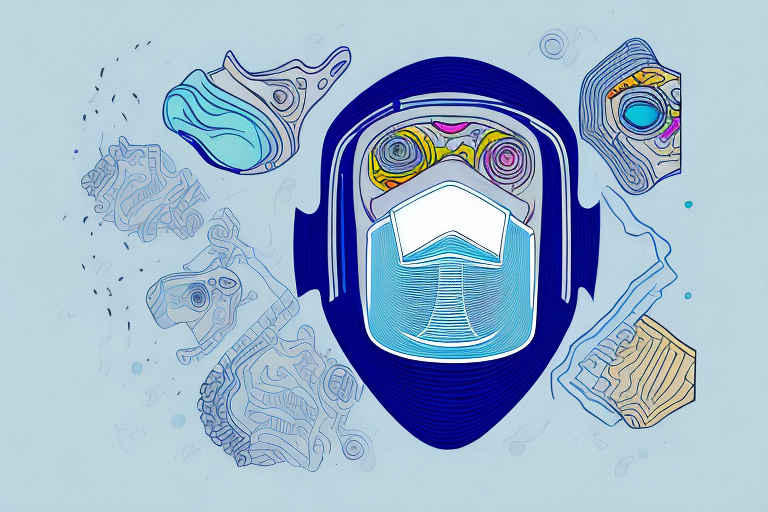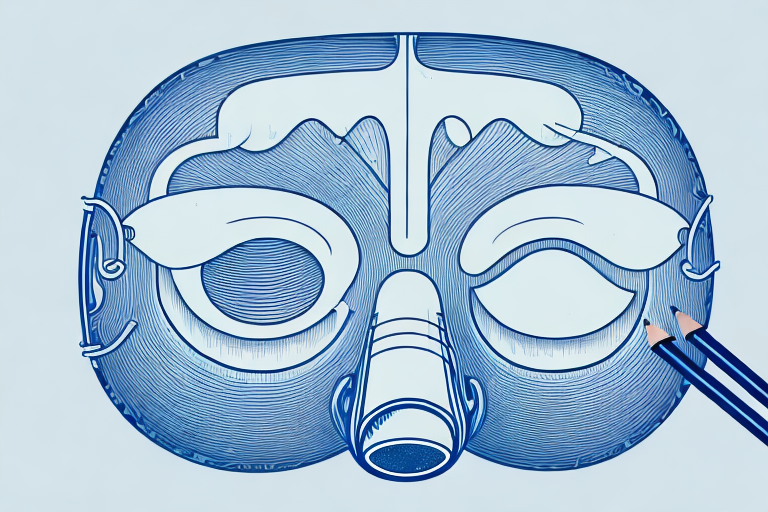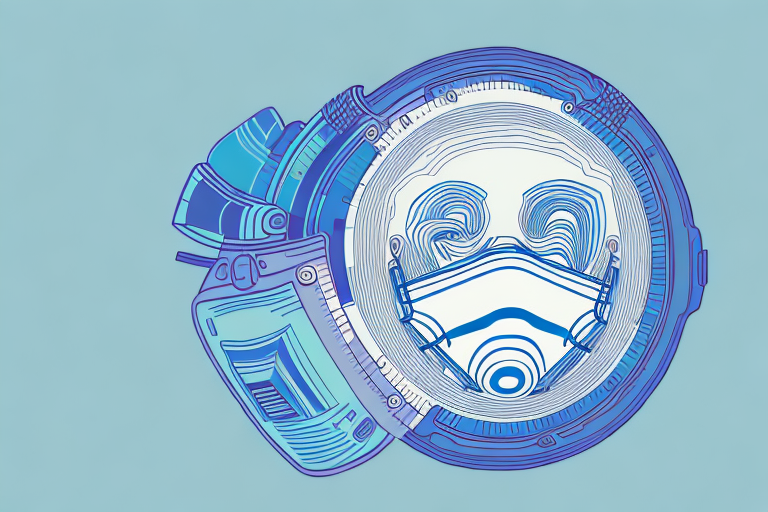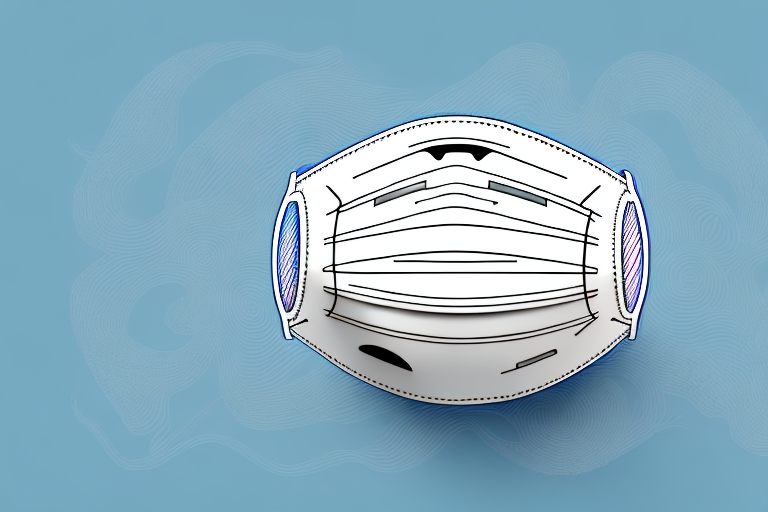If you or a loved one suffers from sleep apnea, you know how important it is to find the right treatment option. One of the most effective and commonly prescribed treatments is the use of a continuous positive airway pressure (CPAP) machine. However, even the best CPAP machine won’t be effective if your mask doesn’t fit properly or is uncomfortable to wear.
In this article, we’ll explore the unique design features of resmed masks and their impact on sleep apnea treatment.
Understanding Sleep Apnea and Its Treatment Options
Sleep apnea is a common sleep disorder that affects millions of people worldwide. It is a condition where breathing repeatedly stops and starts during sleep. These interruptions, called apneas, can last anywhere from a few seconds to a minute or longer and can occur hundreds of times per night. This can lead to poor sleep quality, daytime sleepiness, and a host of other health issues.
People with sleep apnea often snore loudly and may wake up gasping or choking. They may also experience headaches, dry mouth or sore throat upon waking, and difficulty concentrating during the day. Sleep apnea has also been linked to an increased risk of high blood pressure, heart disease, stroke, diabetes, and other health issues.
What is Sleep Apnea?
There are two main types of sleep apnea: obstructive sleep apnea (OSA) and central sleep apnea (CSA). OSA is the more common form and occurs when the muscles in the back of the throat fail to keep the airway open during sleep. CSA is less common and occurs when the brain fails to send the proper signals to the muscles that control breathing.
OSA is often caused by excess weight, especially in the neck area, which can put pressure on the airway. Other risk factors for OSA include smoking, alcohol use, and a family history of the condition. CSA is often associated with medical conditions such as heart failure, stroke, or brain tumors. You can visit https://learning2livelife.com/benefits-of-having-a-cpap-mask-therapy/ to learn more about benefits of having a CPAP mask therapy.

Common Symptoms and Risks of Sleep Apnea
Common symptoms of sleep apnea include loud snoring, daytime sleepiness, waking up gasping or choking, headaches, and dry mouth or sore throat upon waking. If left untreated, sleep apnea can lead to serious health problems, including an increased risk of high blood pressure, heart disease, stroke, and diabetes. It can also cause accidents due to daytime sleepiness and poor concentration.
Treatment Options for Sleep Apnea
Treatment options for sleep apnea vary depending on the type and severity of the condition. Lifestyle changes, such as losing weight, quitting smoking, and avoiding alcohol, can be effective for some individuals. Sleeping on your side instead of your back can also help to keep the airway open during sleep.
Surgery may also be an option for those with severe cases of sleep apnea. The most common surgical procedure is called uvulopalatopharyngoplasty (UPPP), which removes excess tissue from the throat to widen the airway.
CPAP therapy is considered the gold standard for treating sleep apnea and is often the first line of treatment for moderate to severe cases. CPAP stands for continuous positive airway pressure and involves using a machine that delivers a continuous flow of air through a mask, which helps to keep the airway open during sleep. However, the success of CPAP therapy depends on the patient’s ability to tolerate the therapy, which can be affected by the comfort and fit of the mask being used.
In conclusion, sleep apnea is a serious condition that can have a significant impact on a person’s health and quality of life. If you suspect that you or a loved one may have sleep apnea, it’s important to seek medical attention and explore treatment options to improve your sleep and overall health.
The Importance of Mask Comfort and Fit in Sleep Apnea Treatment
It’s important to remember that CPAP therapy is a long-term, nightly commitment. The mask you choose will be a critical component of your therapy, and it’s essential to find one that is comfortable and fits well. If your mask doesn’t fit properly or causes discomfort, it can lead to non-compliance with therapy, which can have significant health consequences.
When it comes to treating sleep apnea, CPAP therapy is one of the most effective treatments available. It involves wearing a mask that delivers a constant flow of air to keep your airways open while you sleep. However, the effectiveness of this treatment depends on how well you can tolerate wearing the mask.
Why Comfort and Fit Matter
Studies have found that comfort and fit are crucial factors in determining patient compliance with CPAP therapy. A study published in the journal Sleep, for example, found that patients who reported higher levels of mask discomfort were more likely to have poorer compliance with therapy.
When considering a mask, it’s important to find one that is comfortable to wear for the duration of your sleep. This means looking for a mask with soft, breathable materials that won’t irritate your skin or cause pressure points. It should also be lightweight and not too cumbersome, making it easy to move around during the night.
Another factor to consider is the noise level of the mask. Some masks can be quite noisy, which can be disruptive to your sleep and that of your partner. Look for a mask that is designed to be as quiet as possible, so you can get the restful sleep you need.

The Connection Between Mask Comfort and Treatment Compliance
A comfortable mask is also essential for ensuring proper treatment compliance. If your mask is uncomfortable or doesn’t fit correctly, you may be more likely to remove it during the night, reducing the effectiveness of your therapy.
To avoid this, it’s essential to find a mask that fits you properly. ResMed offers a range of masks that are designed to fit a variety of face shapes and sizes, ensuring a comfortable fit that stays in place throughout the night.
It’s also important to remember that mask fit can change over time. Weight gain or loss, changes in facial hair, and other factors can all affect how well your mask fits. If you notice that your mask isn’t fitting as well as it used to, it may be time to try a different size or style.
Addressing Common Mask Fit Issues
Common mask fit issues include leaks, unwanted movement, and skin irritations. ResMed masks are designed to address these issues by using innovative features such as adjustable headgear, cushioning materials, and different sizes to ensure an optimal fit.
If you’re having trouble with your mask fit, it’s essential to speak with your healthcare provider. They can help you troubleshoot any issues and find a mask that works best for you.
Remember, finding the right mask is a crucial step in ensuring the effectiveness of your CPAP therapy. By prioritizing comfort and fit, you can improve your compliance with therapy and enjoy a better quality of life.
An Overview of ResMed Masks and Their Unique Design Features
ResMed is a leading provider of CPAP therapy equipment and has become known for their innovative mask designs. ResMed’s approach to mask design involves using data and advanced technology to create masks that are comfortable, effective, and innovative.
ResMed’s Approach to Mask Design
ResMed’s approach to mask design involves gathering data from sleep apnea patients to better understand the challenges they face with CPAP therapy. They then use this data to create masks that address these challenges and provide an exceptional user experience. This approach has resulted in some of the most innovative and effective masks on the market.
For example, ResMed’s AirFit N30i nasal mask features a curved nasal cradle that provides a secure and comfortable fit, while also allowing for freedom of movement during sleep. This unique design feature was developed based on feedback from patients who reported feeling confined by traditional nasal masks.
Types of ResMed Masks: Full Face, Nasal, and Nasal Pillow
ResMed offers a range of masks to suit different preferences and needs. These include full-face masks, which cover the nose and mouth; nasal masks, which cover only the nose; and nasal pillow masks, which use small cushion inserts to create a seal around the nostrils.
One popular ResMed mask is the AirTouch F20 full-face mask, which features a memory foam cushion that conforms to the unique contours of each patient’s face. This provides a comfortable and secure fit, while also reducing the risk of leaks and pressure points.
Innovative Features for Enhanced Comfort and Fit
ResMed masks include a range of innovative features that enhance comfort and fit. These include:
- Adjustable headgear for a customizable fit
- Cushioning materials that provide a soft, comfortable seal
- No-contact nasal cradles that reduce facial markings and skin irritations
- Sophisticated venting systems that reduce noise levels
- Easy-to-use magnetic headgear clips
These features work together to ensure a comfortable, effective, and hassle-free therapy experience. For example, the AirFit F30 full-face mask features a low-profile design that allows for a clear field of vision, while also providing a secure and comfortable fit. This is achieved through the use of a flexible silicone cushion and a forehead support that reduces pressure on the nasal bridge.
Overall, ResMed’s commitment to innovation and patient-centered design has resulted in masks that are comfortable, effective, and easy to use. Whether you prefer a full-face, nasal, or nasal pillow mask, ResMed has a range of options to suit your needs and preferences.

Comparing ResMed Masks: Which One is Right for You?
Choosing the right ResMed mask can be a daunting task. With so many options available, it’s essential to consider your personal preferences, facial structure, and sleep habits when making a decision.
Factors to Consider When Choosing a ResMed Mask
Factors to consider when choosing a ResMed mask include:
- Sleeping position: Do you sleep on your back, side, or stomach?
- Breathing patterns: Are you a mouth breather?
- Facial structure: Do you have a small or large nose or mouth?
- Personal preferences: Do you prefer a mask with headgear or without?
By considering these factors, you can narrow down your options and find the mask that best fits your needs.
Popular ResMed Mask Models and Their Unique Features
Popular ResMed mask models include the AirFit N20 nasal mask, the AirFit F20 full-face mask, and the AirFit P10 nasal pillows mask.
The AirFit N20 features an adaptive fit technology that automatically adjusts to the unique contours of your face, providing a comfortable and secure seal. The AirFit F20 includes an infinity silicone cushion that provides a soft and secure seal around the mouth and nose. The AirFit P10 features a lightweight and minimalistic design that’s perfect for those who value simplicity and comfort.
User Reviews and Experiences with ResMed Masks
Finally, it’s essential to consider the experiences of other users when choosing a ResMed mask. User reviews and recommendations can provide valuable insights into the comfort, fit, and effectiveness of different mask models.
Overall, ResMed masks are an excellent choice for those seeking a comfortable, effective, and innovative mask for their sleep apnea therapy. By considering your personal preferences and taking advantage of the many features and benefits of ResMed masks, you can enjoy a better night’s sleep and improved health outcomes.

